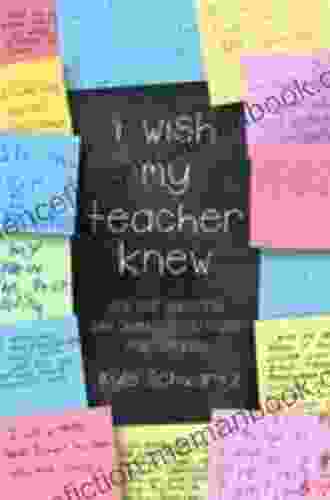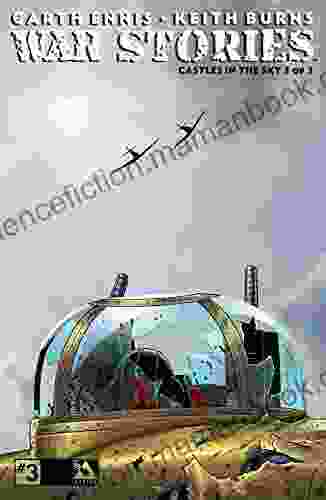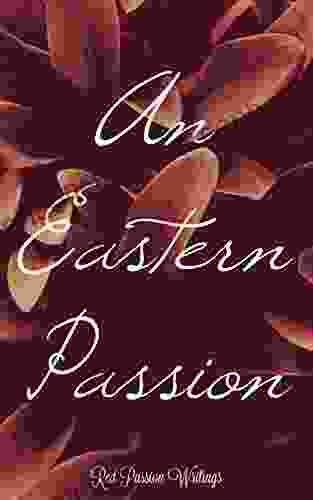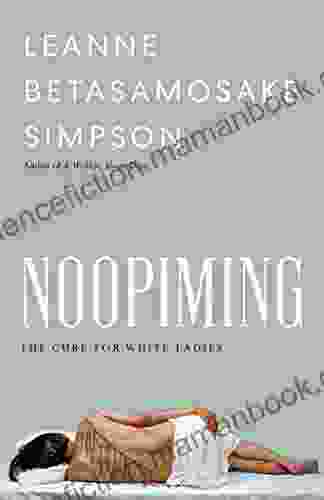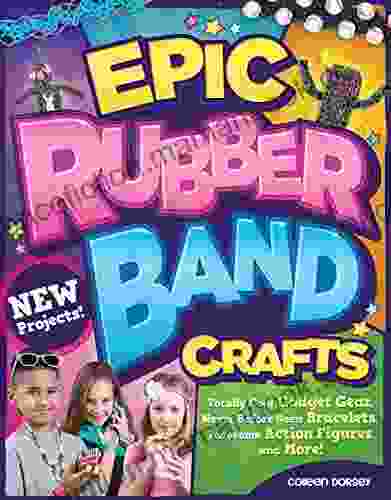"Wish My Teacher Knew": Unveiling the Hidden Realities and Challenges Students Face


Every year, countless students sit in classrooms across the world, eager to learn and grow. However, beneath the veneer of excitement and anticipation, many students harbor unspoken sentiments and concerns that often go unnoticed by their teachers. The "Wish My Teacher Knew" movement, which emerged on social media and has gained traction over time, provides a platform for students to anonymously share their perspectives and experiences, highlighting the challenges they face within the educational system.
4.7 out of 5
| Language | : | English |
| File size | : | 14890 KB |
| Text-to-Speech | : | Enabled |
| Screen Reader | : | Supported |
| Enhanced typesetting | : | Enabled |
| X-Ray | : | Enabled |
| Word Wise | : | Enabled |
| Print length | : | 269 pages |
Academic Pressures and Expectations
One of the most prevalent concerns expressed by students is the immense pressure they feel to excel academically. They often convey a sense of constant stress and anxiety, stemming from the need to maintain high grades, meet parental expectations, and navigate a competitive environment. Some students may feel overwhelmed by the workload and find it challenging to keep up with the pace of instruction, leading to feelings of inadequacy and self-doubt.
Social and Emotional Struggles
Beyond academic pressures, students may also grapple with a range of social and emotional challenges that impact their learning. These may include:
- Bullying and harassment: Students who are victims of bullying often experience fear, isolation, and decreased self-esteem, which can significantly affect their ability to focus and engage in learning.
- Anxiety and depression: Mental health concerns are common among students, and they can manifest in various ways, including difficulty concentrating, sleeping problems, and social withdrawal.
- Family issues: Students who come from challenging family situations, such as poverty, divorce, or abuse, may have additional stressors that interfere with their academic performance and overall well-being.
Instructional Challenges
Students' concerns also extend to the instructional practices and approaches employed in the classroom. They may feel that:
- The pace of instruction is too fast: Some students find it difficult to keep up with the speed at which new material is presented, leading to gaps in their understanding.
- The teaching methods are not engaging: Traditional teaching methods may not resonate with all students, leaving them feeling bored and unmotivated to learn.
- There is a lack of individualized support: Students may feel that they do not receive the individualized attention and support they need to succeed, particularly when they are struggling with specific concepts.
Systemic Issues
In addition to challenges at the individual level, students also express concerns about systemic issues within the educational system. These may include:
- Inequitable access to resources: Students from disadvantaged backgrounds may have limited access to essential resources, such as technology, tutoring, and mental health services, which can hinder their academic progress.
- Standardized testing: Students may feel pressured by the emphasis on standardized testing, which can narrow the curriculum and reduce opportunities for creative expression and exploration.
- Lack of diversity and representation: Students from marginalized groups may feel unseen and underrepresented in the curriculum and among the teaching staff, which can affect their sense of belonging and engagement.
The Importance of Student Voice
The "Wish My Teacher Knew" movement underscores the importance of listening to the voices of students. By providing a safe and anonymous platform for them to share their experiences, educators can gain valuable insights into the challenges that students face. This information can inform pedagogical practices, policy decisions, and system-wide reforms aimed at improving the educational experience for all students.
Strategies for Educators
Educators can play a pivotal role in creating a more inclusive and supportive learning environment by:
- Encouraging open and honest communication: Establish a classroom culture where students feel comfortable sharing their concerns and suggestions.
- Being culturally responsive: Understand and value the diverse backgrounds and experiences of students, and tailor instruction accordingly.
- Providing differentiated instruction: Recognize that students have different learning needs and provide individualized support and resources to help them succeed.
- Building relationships with families: Collaborate with parents and guardians to support students' academic and social-emotional development.
- Advocating for equitable access: Identify and address systemic barriers that hinder students' success, and advocate for policies that promote equal opportunities for all.
The "Wish My Teacher Knew" movement provides a powerful glimpse into the hidden realities and challenges that many students face. By listening to the voices of students, educators can create more responsive and supportive learning environments that foster academic success, social-emotional well-being, and a sense of belonging for all. Ultimately, by empowering students to share their perspectives, we can work towards transforming the educational system into one that truly meets the needs of every learner.
4.7 out of 5
| Language | : | English |
| File size | : | 14890 KB |
| Text-to-Speech | : | Enabled |
| Screen Reader | : | Supported |
| Enhanced typesetting | : | Enabled |
| X-Ray | : | Enabled |
| Word Wise | : | Enabled |
| Print length | : | 269 pages |
Do you want to contribute by writing guest posts on this blog?
Please contact us and send us a resume of previous articles that you have written.
 Top Book
Top Book Novel
Novel Fiction
Fiction Nonfiction
Nonfiction Literature
Literature Paperback
Paperback Hardcover
Hardcover E-book
E-book Audiobook
Audiobook Bestseller
Bestseller Classic
Classic Mystery
Mystery Thriller
Thriller Romance
Romance Fantasy
Fantasy Science Fiction
Science Fiction Biography
Biography Memoir
Memoir Autobiography
Autobiography Poetry
Poetry Drama
Drama Historical Fiction
Historical Fiction Self-help
Self-help Young Adult
Young Adult Childrens Books
Childrens Books Graphic Novel
Graphic Novel Anthology
Anthology Series
Series Encyclopedia
Encyclopedia Reference
Reference Guidebook
Guidebook Textbook
Textbook Workbook
Workbook Journal
Journal Diary
Diary Manuscript
Manuscript Folio
Folio Pulp Fiction
Pulp Fiction Short Stories
Short Stories Fairy Tales
Fairy Tales Fables
Fables Mythology
Mythology Philosophy
Philosophy Religion
Religion Spirituality
Spirituality Essays
Essays Critique
Critique Commentary
Commentary Glossary
Glossary Bibliography
Bibliography Index
Index Table of Contents
Table of Contents Preface
Preface Introduction
Introduction Foreword
Foreword Afterword
Afterword Appendices
Appendices Annotations
Annotations Footnotes
Footnotes Epilogue
Epilogue Prologue
Prologue Ashley Mears
Ashley Mears Chris Thomerson
Chris Thomerson Thomas Pramendorfer
Thomas Pramendorfer Yamen Manai
Yamen Manai Nikos Kazantzakis
Nikos Kazantzakis Heather Dean
Heather Dean Julie Buckner Armstrong
Julie Buckner Armstrong Angela Carter
Angela Carter Leanne Betasamosake Simpson
Leanne Betasamosake Simpson Rebecca Eisenberg
Rebecca Eisenberg Eirik Westcoat
Eirik Westcoat Angelina Feldman
Angelina Feldman Neel Ingman
Neel Ingman Shashank Nigam
Shashank Nigam C S Churton
C S Churton Mother Bee Designs
Mother Bee Designs John Keats
John Keats Michael Mechanic
Michael Mechanic Susan Isaacs
Susan Isaacs Christine Sterling
Christine Sterling
Light bulbAdvertise smarter! Our strategic ad space ensures maximum exposure. Reserve your spot today!
 Gilbert CoxFollow ·15.6k
Gilbert CoxFollow ·15.6k Carter HayesFollow ·13k
Carter HayesFollow ·13k Hayden MitchellFollow ·18.8k
Hayden MitchellFollow ·18.8k Howard BlairFollow ·16.9k
Howard BlairFollow ·16.9k Bryson HayesFollow ·4.3k
Bryson HayesFollow ·4.3k Gage HayesFollow ·8.2k
Gage HayesFollow ·8.2k Elias MitchellFollow ·5.9k
Elias MitchellFollow ·5.9k Donald WardFollow ·14.3k
Donald WardFollow ·14.3k

 Ashton Reed
Ashton ReedClean(ish) Food for People Who Like to Eat Dirty
By: [Your Name] Are...
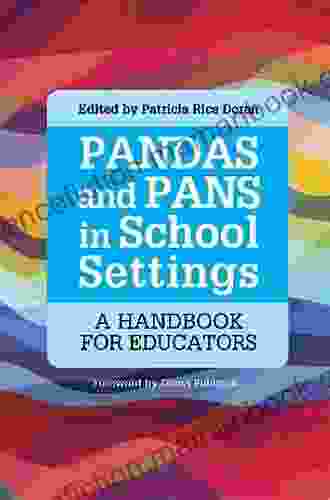
 Ronald Simmons
Ronald SimmonsThe Handbook for Educators: A Comprehensive Guide to...
The Handbook for...

 Derrick Hughes
Derrick HughesAny Place Hang My Hat: A Hauntingly Beautiful Novel by...
A Masterpiece of...

 Adrien Blair
Adrien BlairFly Me to the Moon Vol. 5: A Lunar Odyssey through...
In the vast...

 William Powell
William PowellTips By Gardeners On Variety Of Subjects
Gardening...
4.7 out of 5
| Language | : | English |
| File size | : | 14890 KB |
| Text-to-Speech | : | Enabled |
| Screen Reader | : | Supported |
| Enhanced typesetting | : | Enabled |
| X-Ray | : | Enabled |
| Word Wise | : | Enabled |
| Print length | : | 269 pages |


